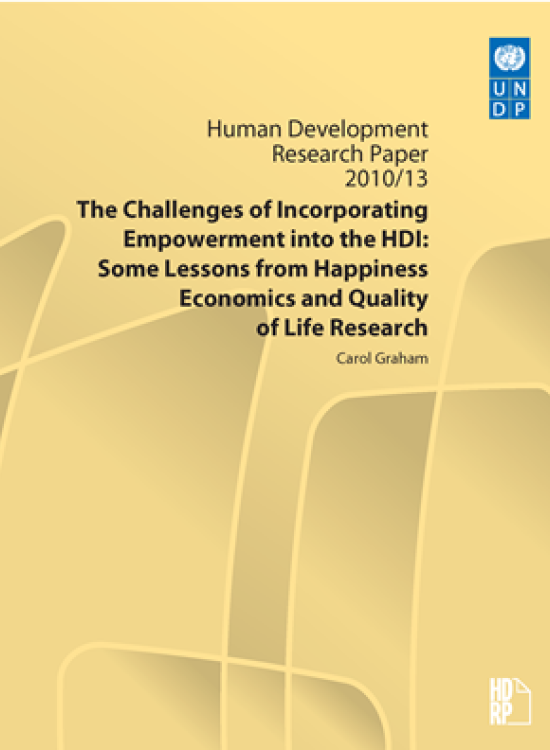The Challenges of Incorporating Empowerment into the HDI
Some Lessons from Happiness Economics and Quality of Life Research

Download Report by Language
Document
hdrp201013.pdf
(374.67 KB)
Citation
Graham, Carol. 2010. The Challenges of Incorporating Empowerment into the HDI: Some Lessons from Happiness Economics and Quality of Life Research. New York.
The Challenges of Incorporating Empowerment into the HDI
Some Lessons from Happiness Economics and Quality of Life Research
Posted on: January 01, 2010
The introduction of the HDI sparked a major debate about the adequacy of income as a measure of development. Perhaps as a result, scholars have developed a number of novel measures of well being. Prominent among these is the use of happiness surveys to study well being in its various dimensions, ranging from well being within persons, to the determinants of well being across individuals, to the effects of contextual factors, such as the environment, political regime, and macroeconomic conditions. Sen’s capabilities approach to poverty, which underlies the HDI, highlights the lack of capacity of the poor to make choices or to take certain actions. Happiness surveys are a means to assess the well being of individuals who are constrained in their capacity to make choices or reveal preferences. This paper reviews what we know about measuring quality of life, based on extensive work with happiness surveys in Latin America, and how that accumulated knowledge can inform the debate the HDI originally sparked. It also discusses how the surveys can contribute to our understanding and measurement of empowerment. It discusses the promises – and potential pitfalls – of directly applying the findings to policy, challenges which are germane to measuring and comparing empowerment across countries.

